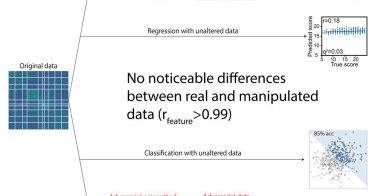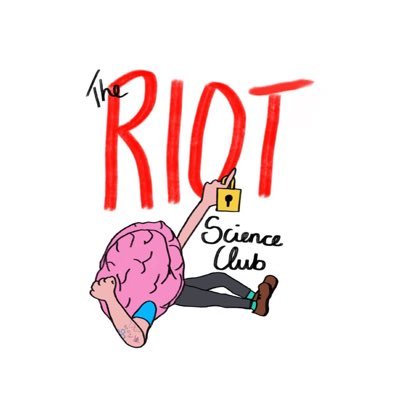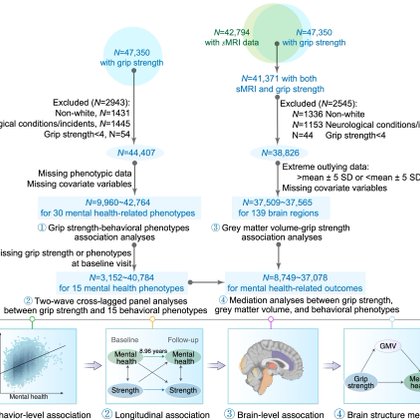
Raimundo Rodriguez
@R_X_Rodriguez
Followers
28
Following
0
Media
5
Statuses
15
0
0
0
There is still much to learn about caricatured FC, but we conclude that dominant task-like patterns are not the only useful signals. What the caricatured data represents and how it can be optimized for downstream applications are exciting questions ready for future exploration.
1
0
0
We then created predictive models using the caricatured connectomes and benchmarked the performance versus standard model accuracy. Caricatured models predicted most behaviors tested and sometimes outperformed standard models, suggesting a useful and unique source of information.
1
0
0
We first ensured the method truly caricatures the data according to the definition proposed by Finn et al., 2017 (NeuroImage). By demonstrating decreased between-individual similarity and increased fingerprinting accuracy, we showed that the caricaturing definition is satisfied.
1
0
0
Resting-state FC has long been a source of debate. Recent evidence suggests that task-like patterns dominate its signal. To study less dominant components, we introduced a caricaturing method to project the data to a subspace orthogonal to these patterns. https://t.co/B5S7xxReOk
1
3
2
Use machine learning in🧠research or for other high-dimensional data? Curious about its robustness to data manipulations ("trustworthiness")? Check out our new article in @Patterns_CP and thread ⬇️
cell.com
Imperceptible data manipulations can drastically increase or decrease performance in machine learning models that use high-dimensional neuroimaging data. These manipulations could achieve nearly any...
4
58
149
Curious about how frailty may be an indicator of other health outcomes? We present new work that suggests a link between frailty and >300 health-related outcomes, especially those relating to mental health, which may be mediated by brain structure. Now out in @LancetDigitalH
2
18
24
4/5 Here, we introduced a statistical application of the edge-centric framework popularized by @joshfasky, @richardfbetzel, and others. We still have much to learn about edge-centric networks, but as edge-centric research progresses, we anticipate power will continue to increase.
1
0
0
3/5 So is edge-centric *better* than node-centric? It’s relative: Node-centric networks had lower mean within-network effect size variance, but edge-centric networks varied less in this measure across networks implying they are more fair to the underlying effects.
1
0
0
2/5 Using edge-centric partitions in the network-level inferential procedure, we observed up to a ~3.5-fold average increase in power compared to the complementary node-centric approach. An even larger increase in power was seen compared to edge-level FDR correction and NBS.
1
0
0
1/5 Remember when @sNeuroble went Super Saiyan? https://t.co/oI0fLY1YED We made it edgier, addressing a question that arises from her cNBS work–how to pool edges? In our new work, we explore the use of edge-centric, rather than node-centric, networks. https://t.co/D5pQS5PV8L
Do you use cluster-level inference to pinpoint effects? 🧠🎯 Are you concerned about power? 🔍 Then we have a simple message for you: Level Up 💪🏾 https://t.co/9xg2wHgjGd w/ @DScheinost @mandyfmejia @AndrewZalesky
@PNASNews 1/6
1
9
10
Very excited for this - thanks for the opportunity @riotscienceclub!
Super excited to welcome @DScheinost and @RosenblattMatt speaking (virtually) for RIOTS all the way from across the pond @Yale. Make sure not to miss it!
0
5
10
Excited to share our latest work investigating associations between grip strength, mental health, and brain structure. Thanks to all excellent coauthors @maggieeastfire @sNeuroble @RosenblattMatt @WeiDai1 @kittysj @vdcalhoun @DScheinost
bmcmedicine.biomedcentral.com
Background Grip strength is a widely used and well-validated measure of overall health that is increasingly understood to index risk for psychiatric illness and neurodegeneration in older adults....
2
7
21
Are you in a neuroscience-related field? We are seeking online survey participants for the study: “Opinions on self-citation rates in neuroscience research”. It will only take about 10 mins if you are interested in participating:
1
9
10





